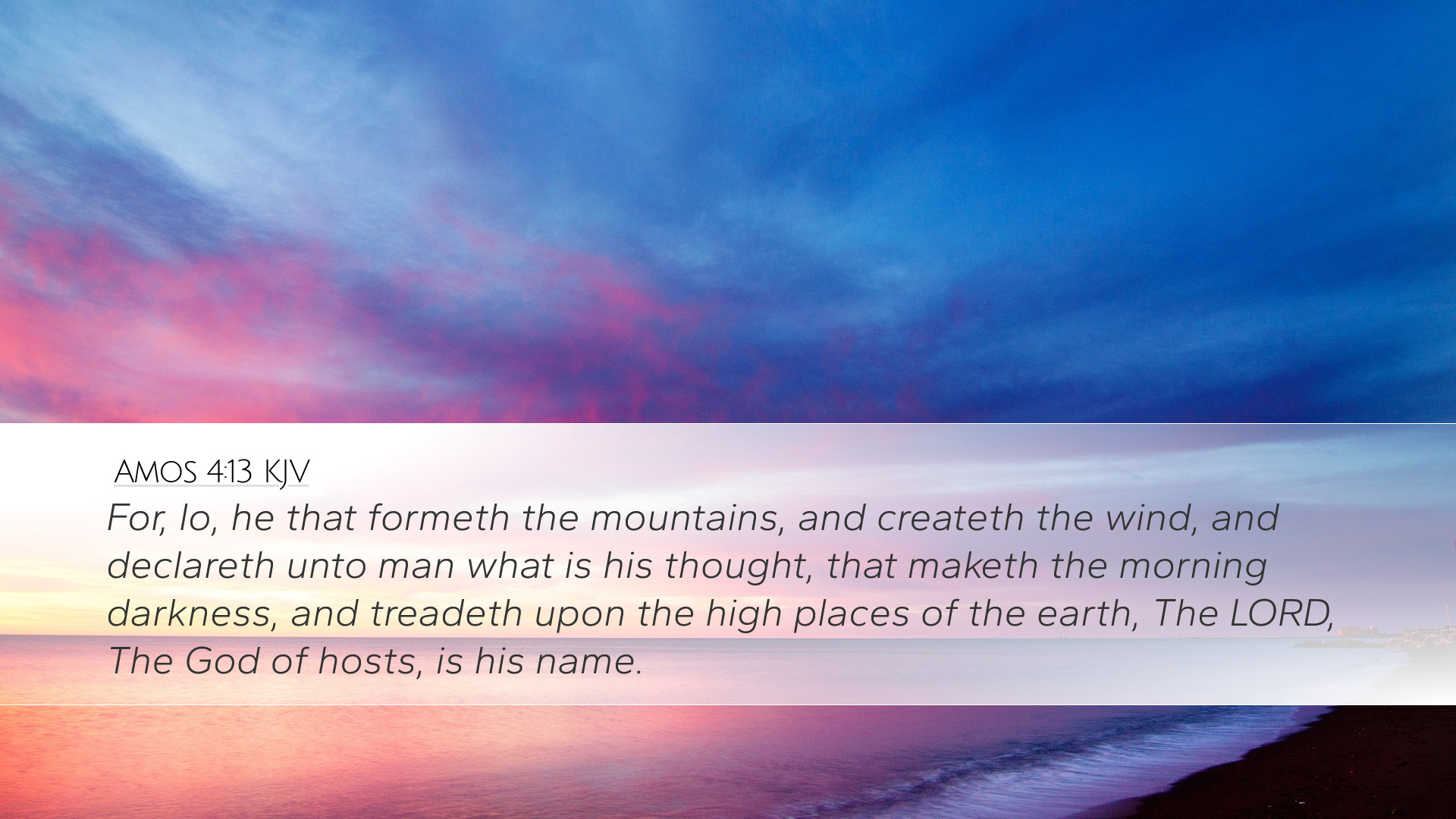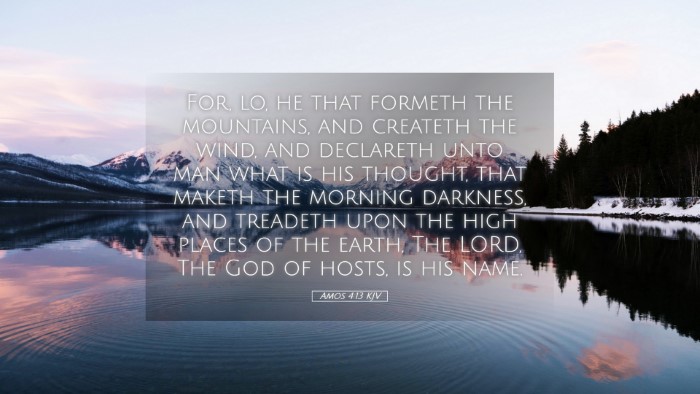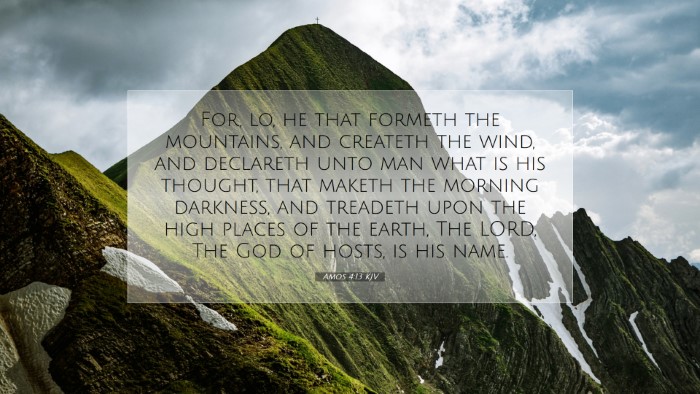Old Testament
Genesis Exodus Leviticus Numbers Deuteronomy Joshua Judges Ruth 1 Samuel 2 Samuel 1 Kings 2 Kings 1 Chronicles 2 Chronicles Ezra Nehemiah Esther Job Psalms Proverbs Ecclesiastes Song of Solomon Isaiah Jeremiah Lamentations Ezekiel Daniel Hosea Joel Amos Obadiah Jonah Micah Nahum Habakkuk Zephaniah Haggai Zechariah MalachiAmos 4:13
Amos 4:13 KJV
For, lo, he that formeth the mountains, and createth the wind, and declareth unto man what is his thought, that maketh the morning darkness, and treadeth upon the high places of the earth, The LORD, The God of hosts, is his name.
Amos 4:13 Bible Commentary
Commentary on Amos 4:13
Amos 4:13 states:
"For, behold, he that formeth the mountains, and createth the wind, and declareth unto man what is his thought, that maketh the morning darkness, and treadeth upon the high places of the earth, The Lord, The God of hosts, is his name."
Introduction
The prophet Amos, known as a shepherd and gatherer of sycamore fruit, delivers a poignant message of divine judgment and the need for repentance among the people of Israel. In this verse, we encounter a magnificent declaration of God's sovereignty and power. The significance of God as Creator is emphasized, setting the stage for understanding His nature and the seriousness of His interactions with humanity.
Divine Sovereignty and Creation
In Amos 4:13, the attributes of God as the Creator are highlighted. The verse opens with a powerful invocation, "For, behold," compelling the audience to pay close attention to what follows.
-
The Forming of the Mountains:
This imagery signifies God's omnipotence, depicting Him as the one who not only creates but also forms the foundations of the earth, establishing His authority over all creation.
-
The Creation of the Wind:
The wind symbolizes God’s unseen yet powerful presence. It indicates not only His creative power but also His ability to act in ways that are often imperceptible to human understanding.
Albert Barnes remarks that the attributes expressed here underline God's capacity to control nature and events according to His divine will.
The Knowledge of Man's Thoughts
Continuing, Amos states that God "declareth unto man what is his thought." This declaration speaks to God's intimate knowledge of humanity—He is aware of our innermost thoughts and intentions. Adam Clarke elaborates on this, suggesting that God's understanding penetrates to the core of the human soul, revealing not only actions but also motives that are hidden from others.
The Darkness of the Morning
"Maketh the morning darkness" introduces a paradoxical image, suggesting times of distress or judgment that follow divine grace. Matthew Henry notes that while morning usually symbolizes hope and new beginnings, the darkness signifies the moral and spiritual decay prevalent in Israel at the time. This concept indicates that the very blessings that God provides can turn into curses if His people do not heed His warnings.
God's Sovereign Authority
The phrase "treadeth upon the high places of the earth" underscores God's dominion over all creation, emphasizing that no place is beyond His reach or authority. This is an assertion against the false gods worshipped by Israel at the time, demonstrating the futility and impotence of idols compared to the omnipotent Lord.
Conclusion: The God of Hosts
The passage concludes with a powerful affirmation: "The Lord, The God of hosts, is his name." This name denotes God's reigning power and authority over all heavenly armies and the earth itself. It serves as a reminder of His ultimate control over history and His unfolding purposes in the world.
For pastors, students, and theologians, this verse encapsulates critical themes of God’s sovereignty, the importance of recognizing His authority, and the call to spiritual vigilance. As Amos delivers this warning, it challenges all believers to reflect upon their relationship with the Creator who knows their hearts and governs the world with justice and power.


